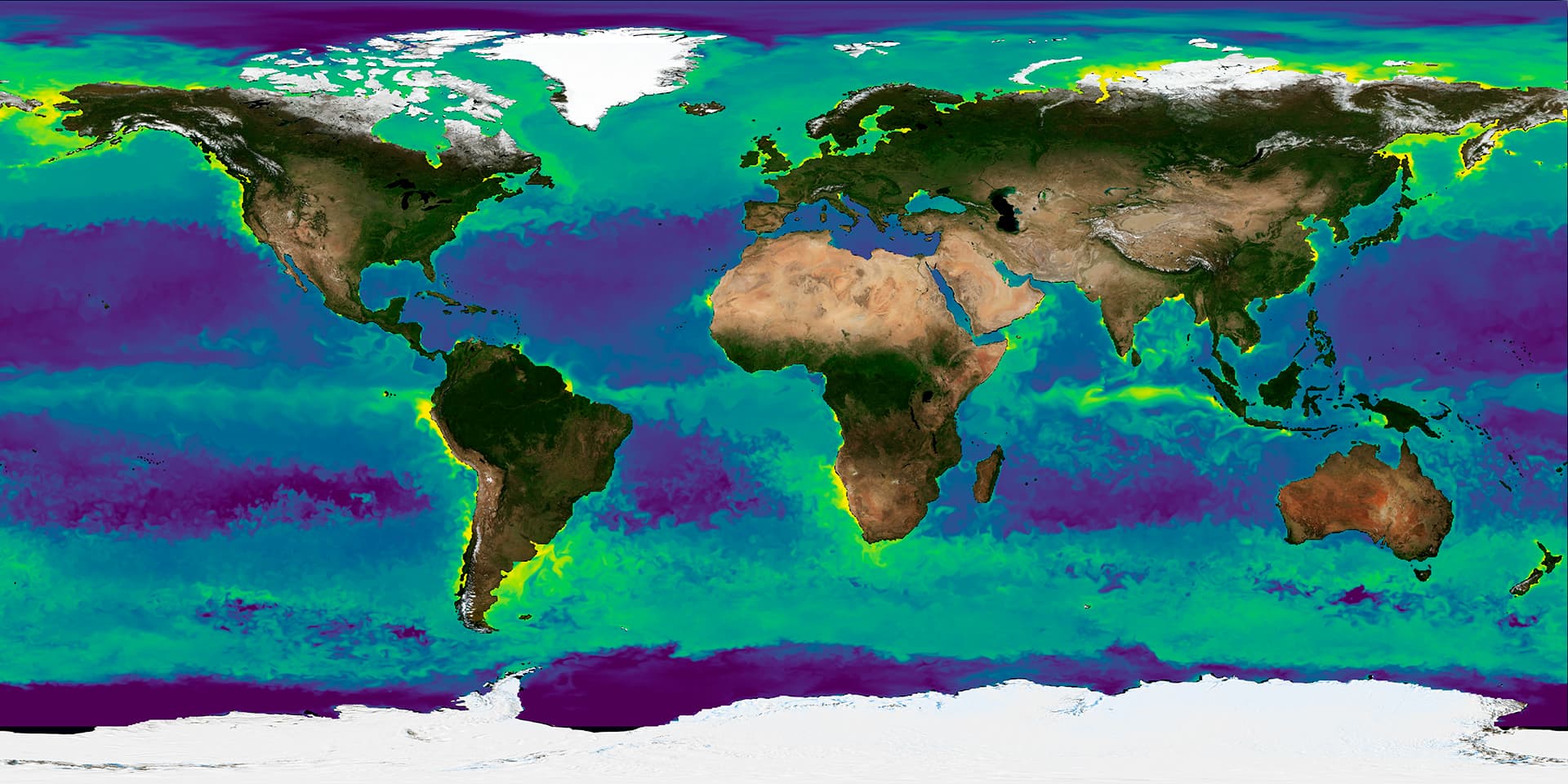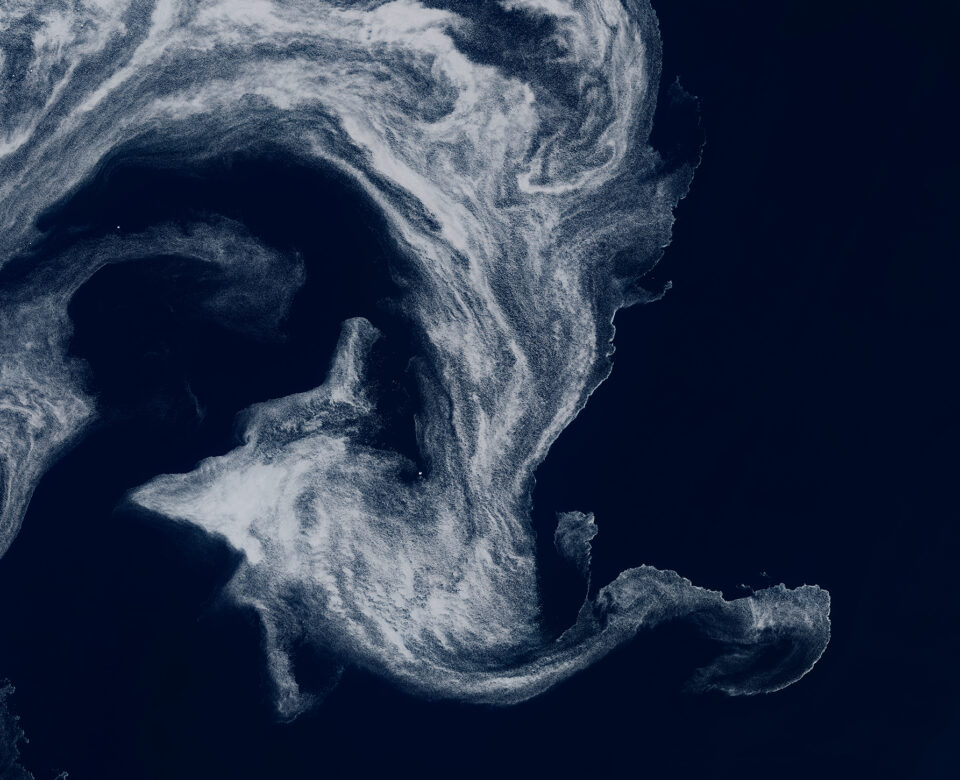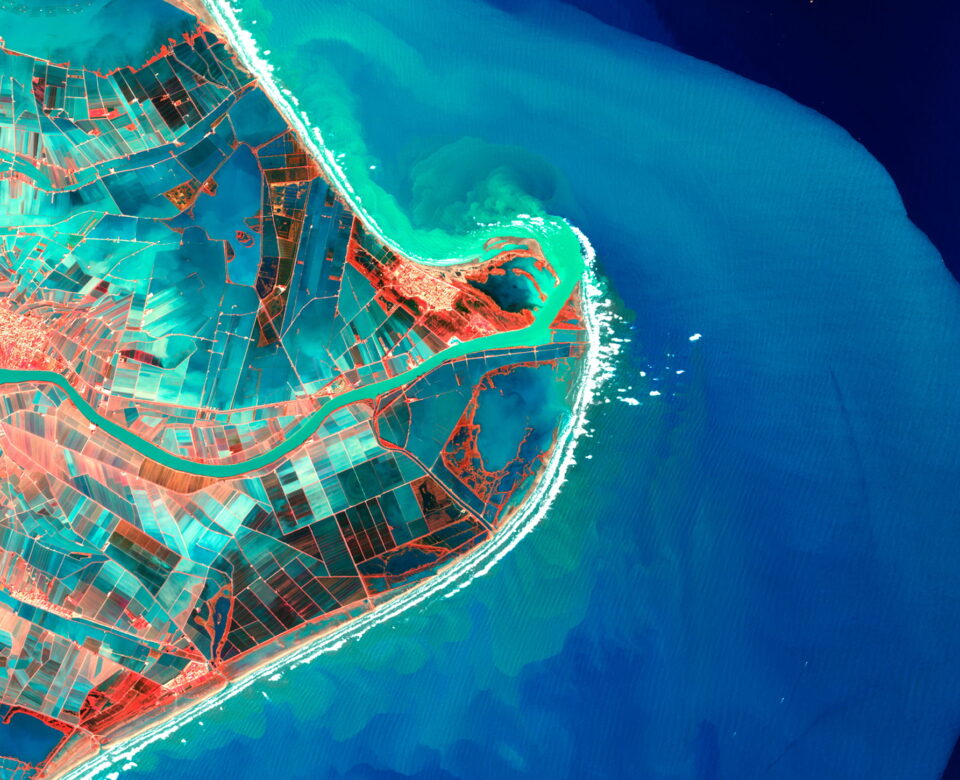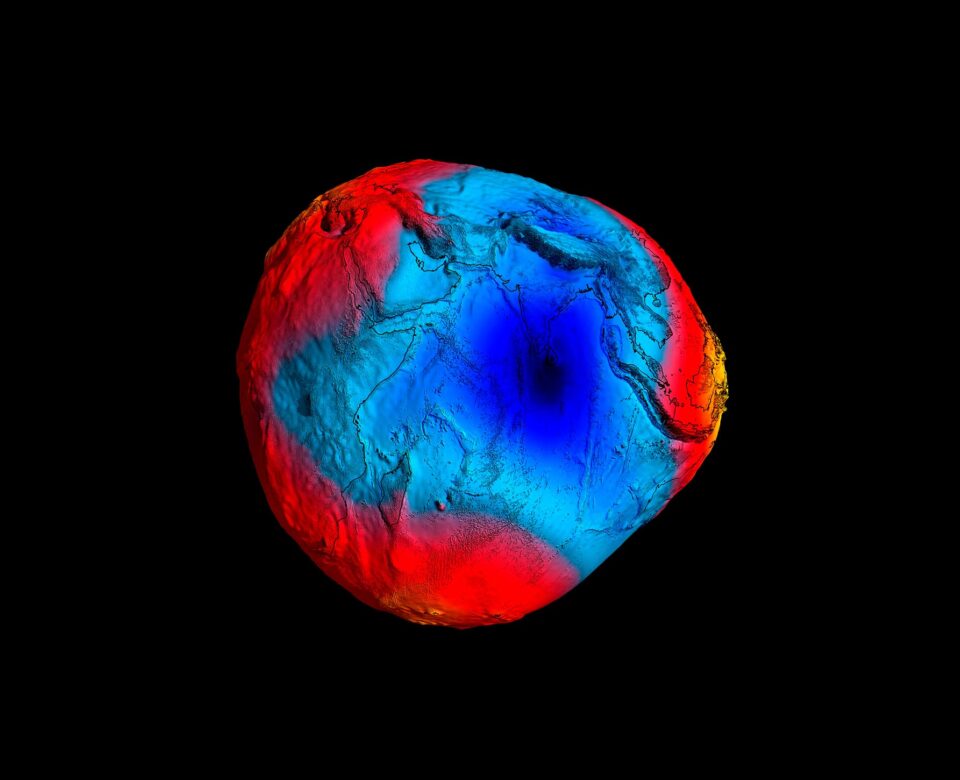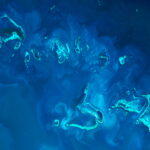
Marine Biodiversity Under Pressure
March 13, 2024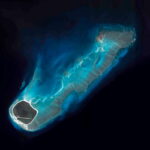
Safe Havens
March 13, 2024Revealing
the Unseen
Plankton bloom in the Baltic sea
This true colour image was taken on 7 August 2015 and has a spatial resolution of 10 m on the ground. In detail, it shows ships cutting through an algal bloom in the central Baltic Sea.
© Sentinel-2, Copernicus, ESA
ECOSYSTEMS
Phytoplankton are an integral part of oceanic cycles and their functioning, and contribute to the production of oxygen on the planet. Satellite data spanning decades expose their crucial role as a key life-sustaining, planetary influence on the climate.

Stefano Ciavatta
Senior scientist
Mercator Ocean International
Toulouse, France
